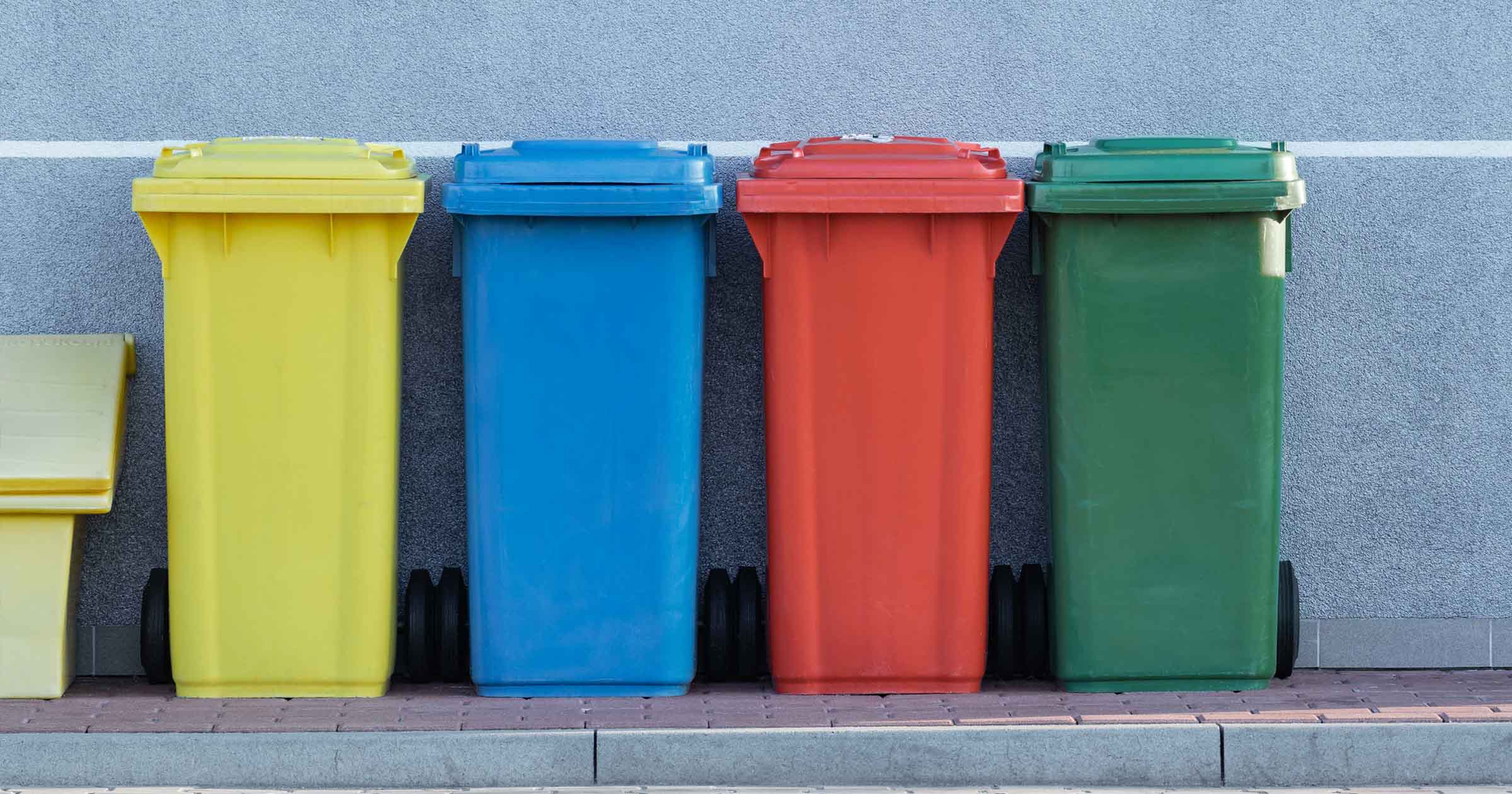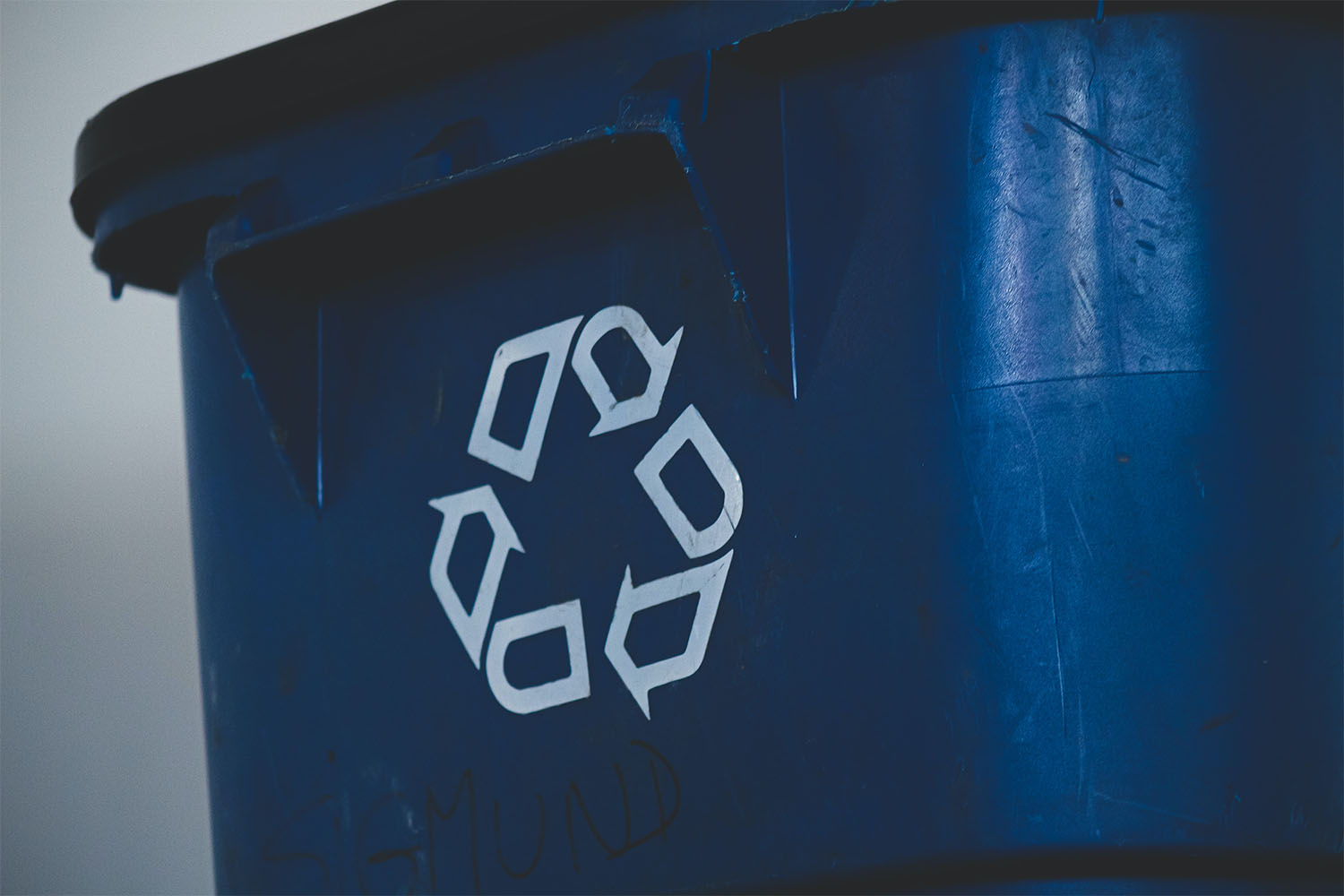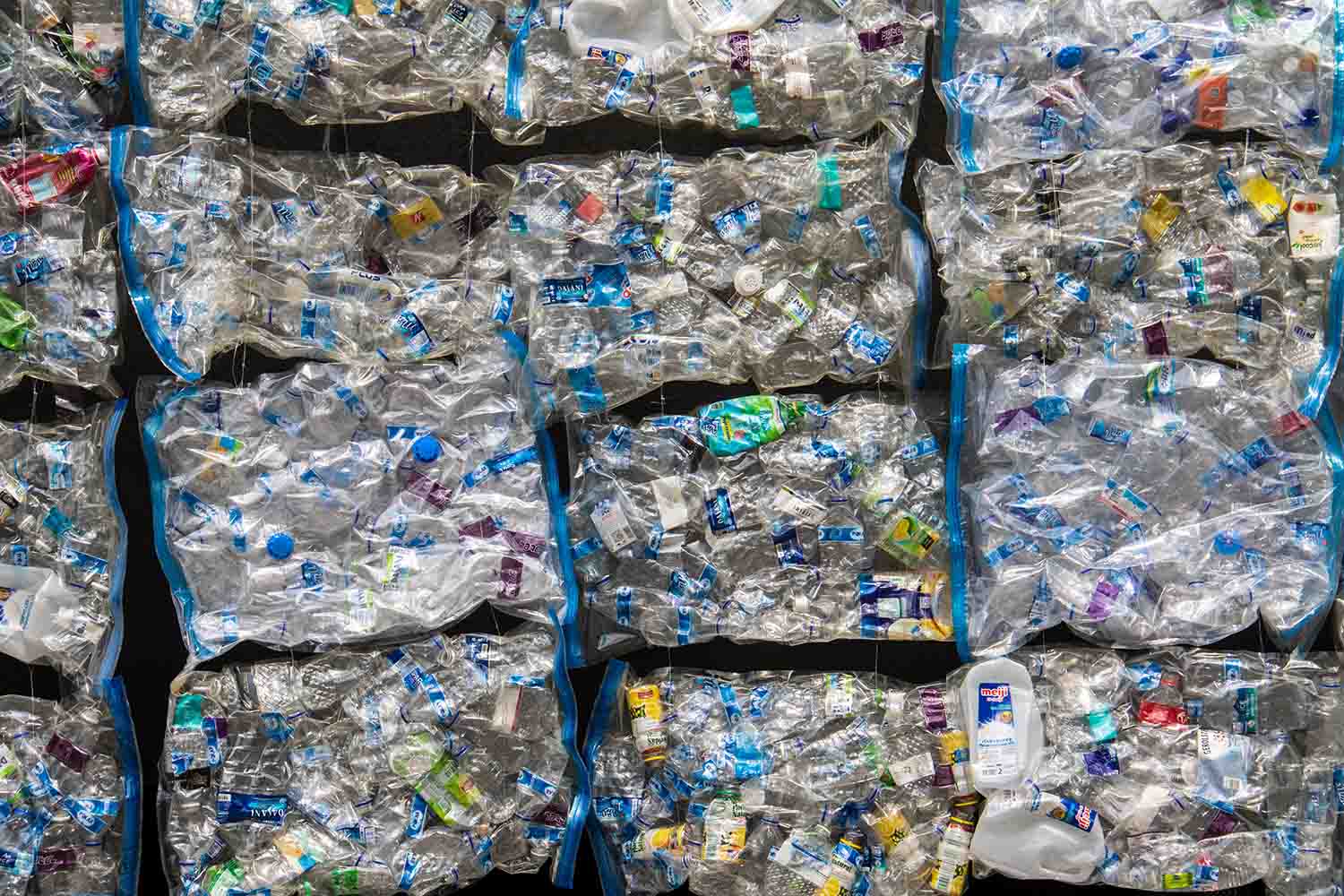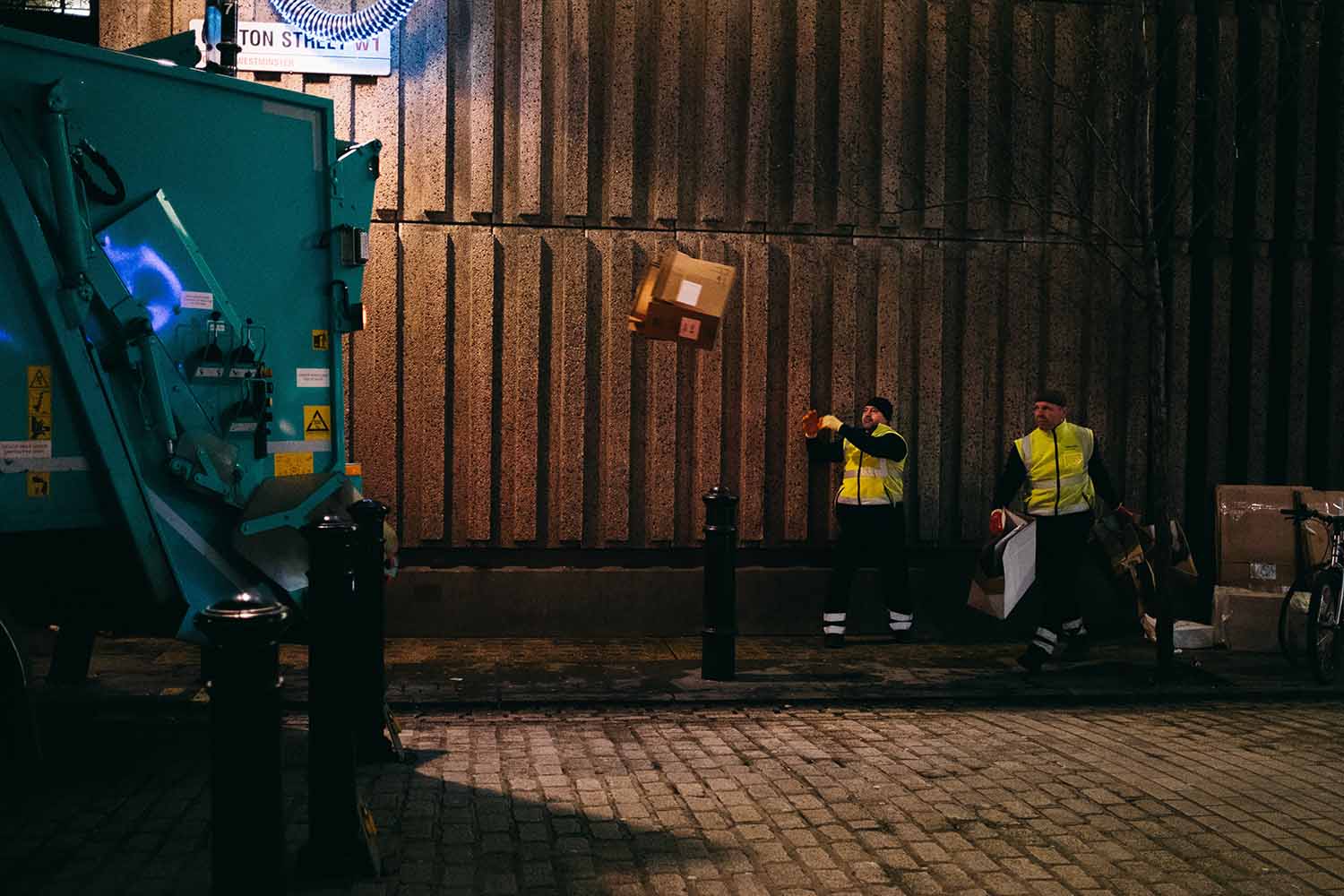How to Start and Optimize a Recycling Business in 2025

Circular economies—economies designed to be regenerative—are growing in popularity, which is probably why you want to start a recycling business. Smart.
The recycling industry is a major factor in driving this change. As more entrepreneurs consider recycling as a viable business option, it’s important to understand what makes recycling companies successful.
This guide covers everything you need to know about starting and optimizing a recycling business, including:
- 5 Recycling Business Ideas
- How to Start a Recycling Business
- Route Optimization: A Key Growth Driver for Successful Recycling Companies
- How to Optimize Your Recycling Business With OptimoRoute
5 Recycling Business Ideas
Before you start planning your recycling business, you have to pick a niche—or a type of good—you want to recycle. (You can’t choose ‘em all.) Why? The short answer is: it would be too expensive. Different recyclable materials require different methods of collection, sorting, and processing, and the recycling industry is heavily regulated by both federal and local governments. Trying to process and abide by regulations for multiple niches would be cost-prohibitive.
Let’s review some potential business ideas (i.e., niches) based on different types of recyclable materials:

Mobile recycling collection
Mobile recycling refers to collecting all manner of mobile phones, from flip phones to smartphones.
An estimated 95% of 18-49 year-olds owned a smartphone in 2021. Mobile phones are a growing source of waste in landfills. Recycling mobile phones can be profitable for you and better for the environment.
Electronics recycling
As a whole, the term e-waste loosely refers to business and consumer electronic equipment that’s no longer functional. Recycling programs that handle e-waste handle everything from computer monitors to microwave ovens.
As recycling centers evolve to be able to process more of the sheer abundance of discarded electronics, this niche will continue to grow. From 2010 to 2019 alone, global e-waste production nearly doubled, growing from 33.8 to 53.6 million metric tons.
Aluminum recycling
Aluminum is light, durable, and used in many different ways, which is why aluminum is in high demand for consumer goods. Aluminum is also very abundant. However, it takes a disproportionate amount of work and energy to refine and produce new aluminum for manufacturing.
Therefore, despite its availability, a recycling business that allows us to reuse aluminum instead is advantageous for manufacturers (and for recycling business owners).
Appliance recycling
In the recycling market, appliance recycling generally refers to large-scale home appliances like laundry machines, refrigerators, and stoves.
As living standards and per capita income continue to rise globally, appliances will offer a growing source of recyclable materials. In fact, the global market for appliance recycling will be worth almost $850 million by 2025.
Plastic recycling
As part of the swell in environmentalism and Earth-first thinking in the 70s, consumers learned that most plastics aren’t biodegradable. Though recycling culture blossomed around attempts to curb plastic usage, market demand remains high due to plastic’s low production costs, durability, and versatility.
In 2018, plastics alone accounted for almost 20% of landfill waste. This means plastics recycling is growing as a business opportunity, especially as current processing methods make them much easier to reuse. Global Industry Analysts, Inc. predicts the plastic recycling market will reach $47.3 billion by 2026.
How to Start a Recycling Business
Once you have a sense of which niche fits you best, the process of starting your recycling business can begin.

Start with a business plan
While they don’t sound super exciting, business plans are secret weapons in the small business world. Because a business plan acts as your north star, it will help you stay on track while your business gets off the ground. While any form of business plan should work for you, there are basics any plan for a recycling business needs to cover. These include:
- What types of materials are you going to recycle?
- How will you collect and drop off recyclable material?
- Will the recyclable material of your niche include any hazardous waste?
- Who will buy the recycled product?
- How will you finance your business?
- How will you keep your business efficient and profitable over time?
A major aspect of creating your business plan should also include how you’ll cover business costs. Again, depending on your niche, these costs will vary. General costs for a recycling business typically include:
- Access to processing complexes
- Transportation of recyclable materials
- Employees and support staff
- Waste management equipment
- Utilities, solid waste permitting, licenses, etc.
Once your business plan’s complete, you’ll know how much funding you’ll need to secure to start your business. The next step?
Finding those funds…
Find funding
A truism in business is it takes money to make money. A recycling business is no exception (i.e., you gotta find green to go green). One advantage other industries may not benefit from is the growing support for entrepreneurs contributing to circular economies.
In addition to traditional sources of business funding, federal government grants exist solely to help business startups.
Take advantage of websites like Grants.gov by searching for terms like “recycling” and reviewing which opportunities are currently available. Other levels of government are also worth exploring (especially with the help of sites like the Database of State Incentives for Renewables & Efficiency).
But don’t limit your thinking to grants alone. Other forms of financial assistance for recycling startups can include private funding, low-interest loans, and tax incentives.
Purchase equipment
When starting out, one of your first major decisions will involve whether you purchase your initial equipment or rent/lease it. Based on your niche and business plan, it may seem like you’ll start out processing enough recyclable material to justify the purchase of waste management equipment.
Remember, though, that the cost of the equipment itself is only a fraction of the overall cost to you, the business owner. When purchasing, you’ll also be responsible for maintenance, repairs, and the salaries of the people who operate it. As a new recycling business owner, it’s often tough to know how much of which type of equipment you’ll need.
For these reasons, leasing may well be the savvier move for most owners as their business gets off the ground.
Hire a team
During the planning process, it’s also important to identify which specific roles you’ll need to fill when starting your recycling business. For example, recycling centers often employ a combination of drivers, sorters, mechanics/technicians, facility managers, recycling coordinators, route managers, and sales reps.
Also certain technologies like route optimization software have experienced growth in both demand and performance over the past few years. This means transportation-based business owners (both new and current) are wise to balance finding the right employees vs. investing in technology to meet their operational demands.
Offer mobile pickup
For some recycling niches, a majority of your business may involve sending drivers on predetermined routes. For electronics and aluminum-focused businesses, offering mobile pickup will appeal to potential customers who need recycling services less frequently, but who do end up with large amounts of recyclable material on ocassion.
These potentially lucrative opportunities are hard to plan for as a business owner. By offering mobile pickup, you’ll ensure your business benefits from these “one-off” opportunities whenever they present themselves. Don’t forget—by making your mobile pickup service seamless and efficient, you might be impressing future customers.
Market your business
The potential benefits of mobile pickup also underscore why you need to market your recycling business. Unlike you and your competition, customers aren’t thinking about recycling 24/7. When they do need something recycled, marketing helps ensure the name of your business is top of mind.
Fortunately, marketing doesn’t need to be complicated. Above all else, avoid the temptation to dump money into a one-size-fits-all approach. Just like a business plan, taking time to plan out who you’re marketing to and how best to do so will pay off long-term.
As part of your marketing planning, make sure to map out everything you know about your main customers in distinct customer profiles. Effective customer profiles give you a sense of which marketing channels your customers look to when they need your services. Then, by focusing on these specific channels, you keep investing your marketing budget in the places your customers are.
How Bureo’s Making Waves With Their Recycling Business
Studies estimate there are 5 trillion pieces of plastic afloat in our seas. Discarded fishing nets are one of the most dangerous products contributing to this mess. So, Bureo’s made it their business to partner with local communities and fisheries to help collect, clean, and sort fishing nets. Bureo then processes these nets into the patented Netplus™ material.
This material is then sold for use at major clothing brands like Patagonia, which creates employment opportunities for local workers and funding for community-based programs.

Route Optimization: A Key Growth Driver for Successful Recycling Companies
No matter how perfectly you plan, your customers will literally be all over the place due to the nature of the recycling business. Fortunately, route optimization ensures you’re picking up all recycled materials with the least amount of stops possible. This capability, among others, can be the difference between boom or bust in the recycling industry.

Like many transportation-based industries, driver wages and fuel costs can make up 67% of total operational costs per mile. Planning for and controlling these costs may arguably be the most important thing you can do when starting your recycling business.
How to Optimize Your Recycling Business With OptimoRoute
Any form of route optimization is better than none. But modern fleet-planning solutions benefit the entire business (not just the owner). For instance, OptimoRoute can:
Automatically plan routes
Owners can import thousands of orders and let the optimization software plan the ideal route for every driver. Smartphone apps provide order information, navigation, route updates, and the status of orders in real time.
Since OptimoRoute adapts to workflow constraints in real time, the software maximizes orders performed while simultaneously reducing costs.
Assign drivers and schedules
Using OptimoRoute, owners can determine ideal shift start times for individual employees, balancing employee schedules with customer expectations.
The software also provides this information in real time, meaning owners can balance workloads throughout the day/week, ensuring no one employee is under—or over—utilized.
Minimize time on the road and save fuel
Efficient routing means fewer trucks and drivers needed for day-to-day operations. This boosts profits. Minimizing time on the road also benefits the environment.
Using best-in-class tools like OptimoRoute, some companies have saved up to 20% in mileage and improved order capacity by 100%, all without increasing the size of their fleets.
The Optimized Recycling Business: Your Competitive Advantage in 2024
While there are a lot of factors to consider when starting a recycling business, the ability to optimize your operations is an undeniable advantage. This is why it’s wise to engineer optimization right into the DNA of your business planning.
To help you do exactly that, take a deeper dive into our automated route planning software for waste collection businesses.
Try OptimoRoute™ for Free
No installation or credit card required


